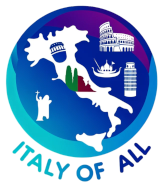The province of Reggio Calabria, located at the southern tip of the Italian peninsula in the Calabria region, is celebrated for its rich history, vibrant cultural life, and stunning natural landscapes that stretch from the Aspromonte mountains down to the coast of the Ionian and Tyrrhenian seas. Known as the “toe” of Italy’s boot, it serves as a vital link between the mainland and Sicily across the Strait of Messina.
Geographically, Reggio Calabria is marked by its dramatic and diverse terrain. The Aspromonte mountain range dominates the province, offering rugged landscapes that are rich in biodiversity and provide numerous opportunities for outdoor activities such as hiking and trekking. The coastal areas are renowned for their picturesque beaches and scenic views, especially along the famous “Costa Viola,” where the mountains plunge into the sea.
Historically, the area is steeped in a rich tapestry of history dating back to ancient Greece, evident in the numerous archaeological sites that dot the province. Reggio Calabria itself was an important Greek colony known as Rhegion and later became a significant Roman city. The province’s history is highlighted in its many museums, notably the National Archaeological Museum of Reggio Calabria, which houses the famous Riace Bronzes, two remarkable full-size Greek bronzes of warriors that date back to the 5th century BC.
Culturally, Reggio Calabria has a vibrant local tradition of music, dance, and folklore, with numerous festivals and events that celebrate its rich heritage and local customs. The area is also known for its craftsmanship, particularly in ceramic and woodwork.
Cuisine in Reggio Calabria reflects its diverse cultural influences and abundant natural resources. The diet is typically Mediterranean, featuring seafood from the coastal waters, citrus fruits, and olives from the hills, and renowned Nduja sausage—a spicy, spreadable pork sausage—from Spilinga. Local desserts like “torta reggina” (a type of chocolate and almond cake) are also popular.
Economically, the province’s economy is driven by agriculture, with significant production of Bergamot oranges, olive oil, and wine. Fishing and tourism are also critical, with the latter benefiting from the rich historical sites, beautiful beaches, and cultural festivals. Industrial development is less pronounced but includes food processing and artisanal crafts.
Despite facing challenges such as economic disparity and the need for infrastructure improvements, Reggio Calabria is actively working towards enhancing its economic resilience. Efforts to promote sustainable tourism and protect its environmental assets are key components of the province’s strategy for future growth.
Overall, Reggio Calabria offers a compelling blend of breathtaking natural scenery, profound historical depth, and vibrant cultural expressions, making it a pivotal area in both the cultural and economic landscape of southern Italy. Its ongoing development efforts aim to harmonize the preservation of its rich heritage with the promotion of a sustainable future.
Comuni in Reggio Calabria Province:
- Bianco
- Bova Marina
- Basicò
- Agnana Calabra
- Bagaladi
- Bagnara Calabra
- Bovalino
- Bivongi
- Ardore
- Antonimina
- Africo
- Benestare
- Camini
- Casignana
- Brancaleone
- Campo Calabro
- Careri
- Caulonia
- Canolo
- Calanna
- Bruzzano Zeffirio
- Condrò
- ** Cittanova
- Fiumara
- Ciminà
- Condofuri
- Cosoleto
- Ferruzzano
- Cinquefrondi
- Delia Delianuova
- Grotteria
- Mammola
- Giffone
- Isca sullo Ionio
- Melicucco
- Melito di Porto Salvo
- Marina di Gioiosa Ionica
- Melicuccà
- Galatro
- Laureana di Borrello
- Gioiosa Ionica
- Locri
- Martone
- Gerace
- Gioia Tauro
- Montebello Ionico
- Pazzano
- Molochio
- Palmi
- Monasterace
- Palizzi
- Oppido Mamertina
- Motta San Giovanni
- Rosarno
- Placanica
- Portigliola
- Rizziconi
- Roghudi
- Roccella Ionica
- Platì
- Reggio Calabria
- Polistena
- Riace
- Rota Greca
- Sinopoli
- San Pietro di Caridà
- San Roberto
- Santa Cristina d’Aspromonte
- Staiti
- San Procopio
- Scilla
- Sant’Agata del Bianco
- Seminara
- San Giorgio Morgeto
- San Giovanni di Gerace
- Scido
- ** Sant’Eufemia d’Aspromonte
- Santo Stefano in Aspromonte
- San Luca
- Sant’Alessio in Aspromonte
- Stilo
- San Ferdinando
- Varapodio
- Terranova Sappo Minulio
- Taurianova
- Villa San Giovanni
